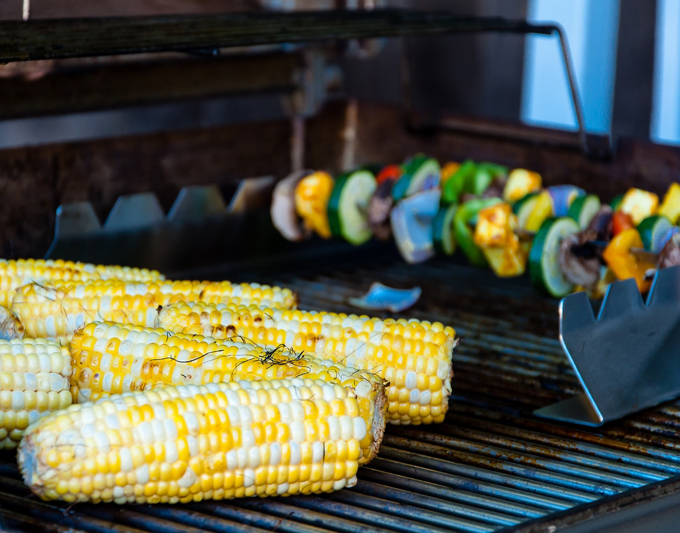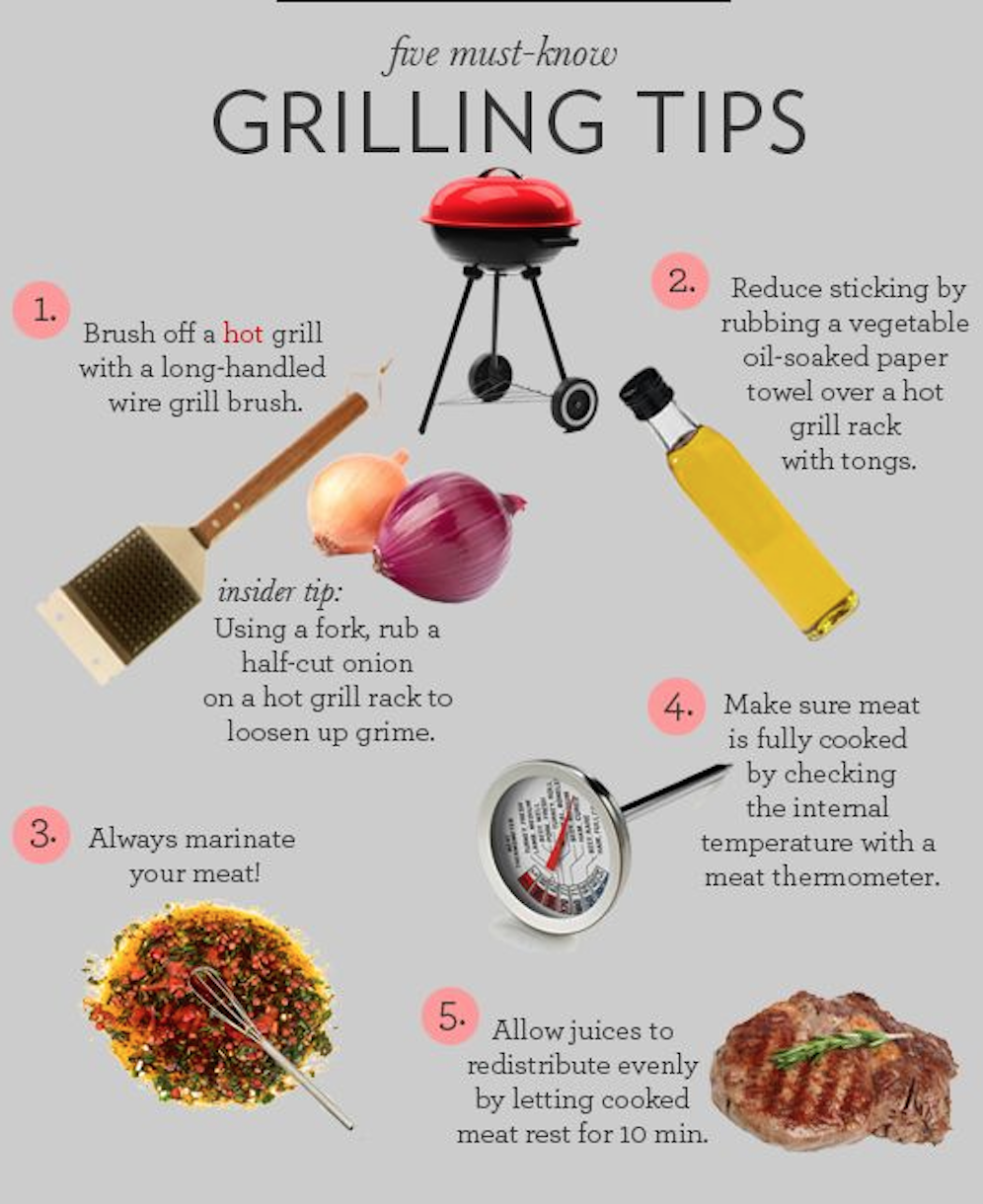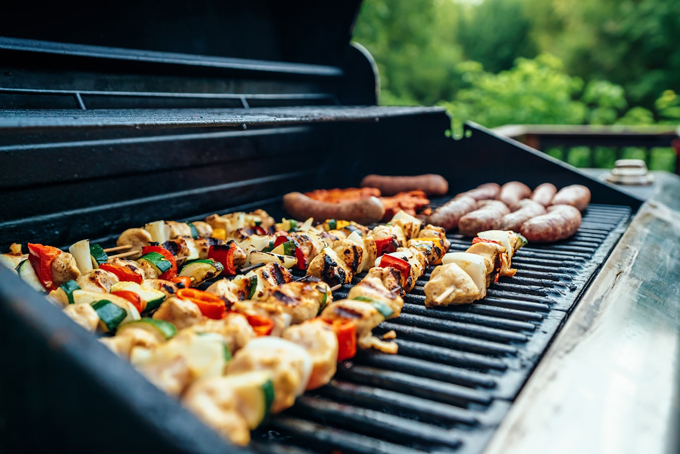The health of your summer barbeque has as much to do with what you’re cooking, as it does with how you cook it. Use these following tips to decrease the number of carcinogens you’re consuming and make your grilled meals taste better too!
Carcinogens and Grilling
Any meat grilled at a very high temperature will naturally produce heterocyclic amines (HCA’s), which are known cancer-causing agents. These form when amino acids and other naturally-occurring sugars are combined. Carcinogens can also increase depending on the length of time the meat is cooked, and what type of meat you are cooking.
Studies show that:
- Well-done meat has 3.5 times more HCA than medium-rare meat.
- The highest concentration comes from bacon.
- The second highest is from fried pork, followed by beef, and then chicken. (This particular study didn’t look at fish.) 1

Veggies are best on the grill!
Plants don’t have the combination of creatine and sugar found in meats, nor do they have the fat drippings that smoke up into the other grilling-induced carcinogens called polycyclic aromatic hydrocarbons (PAH).
Marinate, Marinate, Marinate
We all know that grilled pineapple, apricots, and peaches are fabulous when marinated with a bit of sesame oil but for those of you who love your meat, did you know that marinates can make a huge difference in minimizing your exposure to carcinogens and add a ton of flavour?
Even briefly marinating foods is effective in reducing the amount of carcinogens — in some cases by as much as 92 percent to 99 percent. As a rule, use about one-half cup of marinade for every pound of food, although large pieces may need more to cover the food’s surface adequately. 2
The amount of marinating time is up to you because it only takes a few minutes to get the full cancer-preventing effect. Longer times will just add more flavor.
Tips to minimize your exposure to carcinogens while grilling
Pre-Grill
Avoice commercial barbecue sauces with additive sugars that can actually triple the number of HCAs in meat!
The Cancer Research Center of Hawaii found that a teriyaki marinade reduced HCAs by 67 percent. A turmeric-garlic sauce reduced them by 50 percent. The key here is to use a thin, vinegar-based sauce, without sugar.
In addition, they found that basil, mint, rosemary, sage, savory, marjoram, oregano and thyme possessed powerful anticancer action in grilled meats and lowered HCA production. Most of these herbs are rich in three compounds — carnosic acid, carnosol, and rosmarinic acid — all of which are potent antioxidants. (2) Be sure to add these herbs to your marinades! 3
Trim excess meat fat before grilling to avoid flare-ups.
Mid-Grill
To avoid creating carcinogens, start on a medium-high temperature and flip the meat often. This will avoid charring, and that will prevent HCAs.
If you have multiple burners within your grill, barbeque each side of your meat quickly and then turn off the burner that lies directly under the meat while keeping the other burners on, essentially turning your grill into an oven.
Scrape off your grill, even while you’re cooking, so stuck food and grease don’t catch fire and keep a water spray bottle handy for flare-ups.
Post-Grill
Consumption of many HCA’s can be eliminated simply by not eating char. Cut it off!

Follow these simple tips to add flavour and decrease your exposure to cancer-causing agents. Enjoy your backyard barbeque and remember that slow & steady wins the race!
Sources:
“Lower Grilling Carcinogens by 99 Percent” Will Clower, PhD, Retrieved 27 June 2019. <https://draxe.com/grilling-carcinogens/>.
1 https://www.ncbi.nlm.nih.gov/pubmed/22129588
2 https://www.ncbi.nlm.nih.gov/pubmed/10578481
3 http://www.ncbi.nlm.nih.gov/pubmed/9216741






